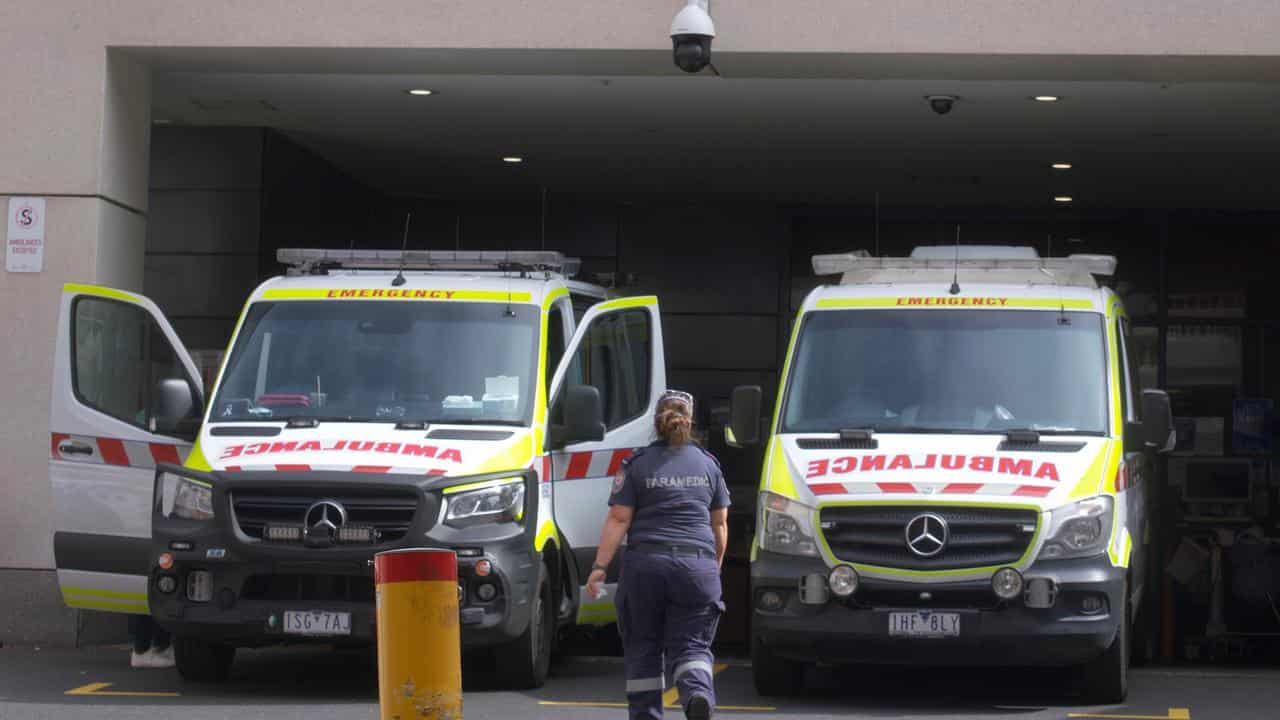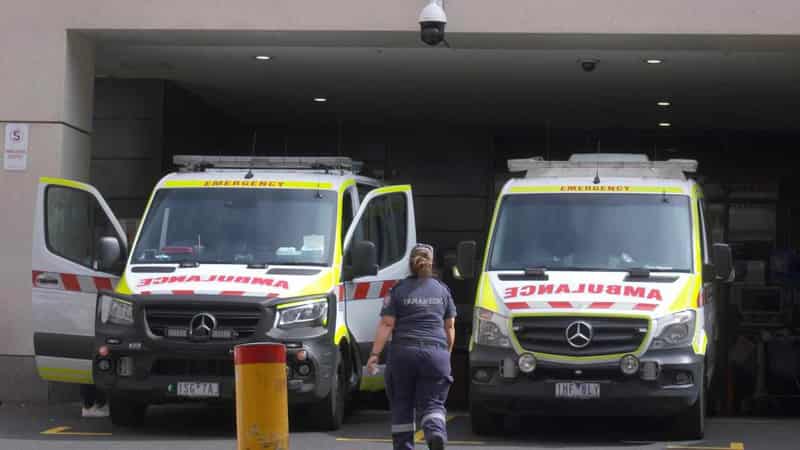
The federal government must step up and do more to stop paramedics wasting years waiting for patients to be seen in hospitals, according to Victoria's health minister.
Ambulance Victoria documents obtained by The Age newspaper show staff spent about 523,000 hours waiting at emergency departments over the past five years, equivalent to about 120 years.
The situation is known as ramping, which is when paramedics have to wait a prolonged period of time with patients at a hospital before they are seen by a doctor.
It's created by a lack of available beds in emergency departments, which is in turn impacted by full wards in other parts of the hospital.
The most challenging period for ramping was from 2020 to 2022 at the height of the COVID-19 pandemic, according to Ambulance Victoria clinical operations executive director Anthony Carlyon.
He said paramedics now waited an average of about 80 minutes per patient, which was still double the target of 90 per cent of patients seen in 40 minutes.
"There's some good work under way, but nobody's under any illusions that this is a quick fix," Mr Carlyon told Melbourne radio station 3AW on Monday.
Victorian Health Minister Mary-Anne Thomas said similar issues were playing out across the country and at any given time there were at least 300 patients able to be discharged from hospital, but they had nowhere to go.
The minister pointed the finger at National Disability Insurance Scheme packages not being approved in time for patients to leave hospital and issues in aged care, which are both responsibilities of the federal government.
"Addressing ramping is a key issue for our government but we need the federal government to step up and play its role," Ms Thomas said.
"It's never been more difficult to see a bulk billing GP and as a consequence of that we see more and more Victorians than ever before presenting to emergency departments."
Federal Health Minister Mark Butler said the May budget included many measures designed to make it easier to see a GP and take pressure off emergency departments, including funding urgent care clinics, increasing the bulk-billing incentives and boosting the amount doctors receive for Medicare services.









